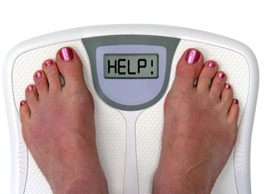Why do diets stop working?
Dr. Arya Sharma is chair for obesity research and management at the University of Alberta, and scientific director of the Canadian Obesity Network. Here, he answers a common question about the science of weight management

Source: Best Health Magazine, May 2010
Q: Three months ago, I decided I wanted to lose 20 pounds and went on a diet. I planned my meals, counted my calories and did my exercises, and the pounds started coming off. Now I’ve lost 15 pounds’but I seem to have hit a wall, even though I’m doing everything right. What’s going on?
A: You have reached what obesity experts call the ‘weight-loss plateau.’ This means that no matter what diet or exercise plan you follow, and no matter how fast or how slowly you lose the weight, sooner or later you will hit that wall. So why does your diet stop working?
To understand this, let’s look at what happens when you go on a diet. Let’s assume that you weigh 150 lb. and your body needs about 2,000 calories a day to function properly. Now you go on a 1,500-calorie diet. Since your body still needs 2,000 calories a day, it will have to get the missing 500 calories by burning some of your fat stores. By the end of a week, this will add up to around 3,500 used-up calories, which is a loss of about one pound. So far, so good.
But as you continue on your diet and keep losing weight week after week, something strange happens. With each additional pound of weight loss, your body adapts by gradually, but steadily, burning fewer and fewer calories each day. Medical research clearly shows that losing as little as 10 percent of your weight can ‘slow down’ your metabolism by as much as 20 percent.
This means that if you start at a body weight of 150 lb., once you have lost 15 pounds your body can now thrive on 20 percent fewer (or 400 calories) per day. In addition, you are no longer carrying around the weight of those 15 pounds, which can easily prevent you from burning another 100 calories a day’because less weight to carry around means less work for your body and therefore fewer calories burned.
As a result, by the time you have lost 15 pounds, your slimmer and trimmer body will have reduced its needs to 1,500 calories per day. Your body now no longer needs to burn any more of its calories from stored body fat to meet its needs, so you will no longer lose any more weight, even if you faithfully stick to 1,500 calories per day.
You have hit your weight-loss plateau.
That’s the scenario for someone who weighs 150 lb. Because people start their diets at different weights, their metabolism slows at different rates. Also, activity levels will differ, so some people may lose more weight than others before reaching their weight-loss plateau. But sooner or later, everyone’s diet stops working.
The weight-loss market is full of tips and advice on the challenge of conquering the weight-loss plateau’everything from energy boosters to more restrictive diets and, of course, different exercises. In the end, though, it always comes back to your body adapting to living off fewer calories and refusing to lose more weight.
The only way to get past the weight-loss plateau is to once again force your body to burn its fat stores by creating an energy deficit‘either by eating even less or by substantially increasing your activity level. In the previous example, you would need to further reduce your calorie intake to as few as 1,000 calories a day’and there are very real health risks to being on a 1,000-calorie diet without medical supervision‘or burn off another 500 calories a day through exercise, to once again begin losing one pound per week. Of course, as your weight comes down, so do your calorie needs, and once again you will soon be at another weight-loss plateau’this time potentially when you’re on a 1,000-calorie diet! Not a good idea.
How does this explain those people who are able to lose much more than 15 or 20 pounds? Their calorie needs are probably higher at the outset of their diet, so they have more leeway to cut calories as they reach each plateau.
From all this, you can see that getting past the weight-loss plateau and achieving your ‘dream’ weight may not actually be possible or sustainable. Until there’s a magic pill, my advice is always to do the best you can to achieve a realistic weight, and then focus on staying there. Remember that it takes the same amount of effort to keep the weight off as it does to lose it in the first place.
This article was originally titled "Why do diets stop working?" in the May 2010 issue of Best Health. Subscribe today to get the full Best Health experience’and never miss an issue!’and make sure to check out what’s new in the latest issue of Best Health.




